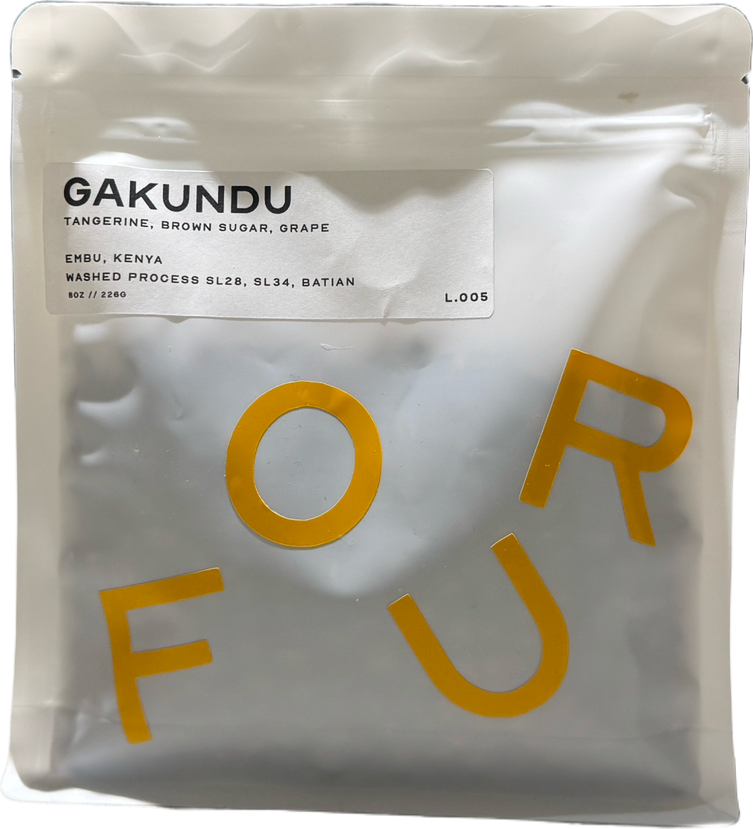 Image 1 of 1
Image 1 of 1


GAKUNDU
8oz (226G) bag
tasting: Tangerine, brown sugar, grape
origin: Kenya
region: Embu
variety: SL28, SL34, Batian
process: Washed
altitude: 1800 masl
roast: Light
The Farms
Layo Taraga Washing Station was founded in the year 2000, and serves 500 smallholder farms, each of whom owns about 1/2 hectare of land in the area around Haro Wachu town in the Uraga District. Coffees in Ethiopia are typically traceable to the washing station level, where smallholder farmers—many of whom own as little as 1/8 hectare on average—deliver cherry by weight to receive payment at a market rate. The coffee is sorted and processed into lots without retaining information about whose coffee harvest is in which bag or which lot
Coffees in Ethiopia are typically grown on very small plots of land by farmers who also grow other crops. The majority of smallholders will deliver their coffee in cherry to a nearby washing station or central processing unit, where their coffee will be sorted, weighed, and paid for or given a receipt. Coffee is then processed, usually washed or natural, by the washing station and dried on raised beds.
8oz (226G) bag
tasting: Tangerine, brown sugar, grape
origin: Kenya
region: Embu
variety: SL28, SL34, Batian
process: Washed
altitude: 1800 masl
roast: Light
The Farms
Layo Taraga Washing Station was founded in the year 2000, and serves 500 smallholder farms, each of whom owns about 1/2 hectare of land in the area around Haro Wachu town in the Uraga District. Coffees in Ethiopia are typically traceable to the washing station level, where smallholder farmers—many of whom own as little as 1/8 hectare on average—deliver cherry by weight to receive payment at a market rate. The coffee is sorted and processed into lots without retaining information about whose coffee harvest is in which bag or which lot
Coffees in Ethiopia are typically grown on very small plots of land by farmers who also grow other crops. The majority of smallholders will deliver their coffee in cherry to a nearby washing station or central processing unit, where their coffee will be sorted, weighed, and paid for or given a receipt. Coffee is then processed, usually washed or natural, by the washing station and dried on raised beds.